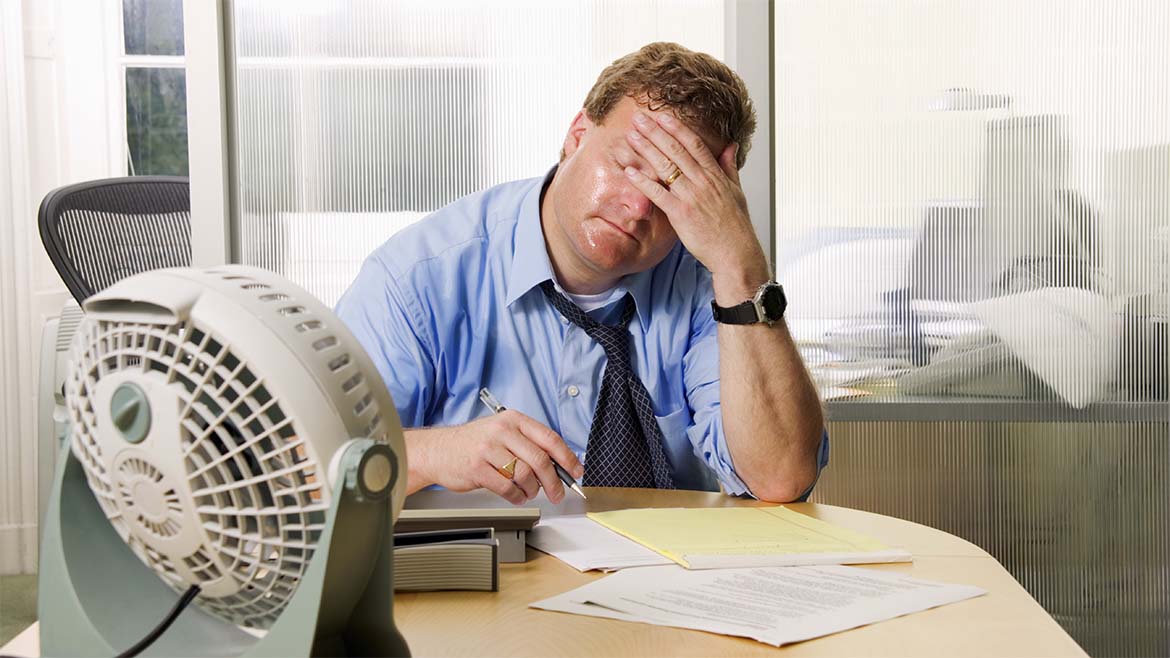In early July, the Biden administration proposed a rule that addresses excessive heat in the workplace, as tens of millions of them were under heat advisories, the nation’s No. 1 weather-related cause of death. If finalized, the rule would establish the first major federal safety of its kind: one that protects an estimated 36 million workers from heat exposure injuries on the job. Workers covered by the rule would include farmworkers, delivery workers, workers in factories/kitchens/warehouses, and tradespeople — including HVAC professionals, whose work often takes them into attics that can far surpass 100° on a summer afternoon.
The rule was highlighted as one of the five steps the Biden administration is taking to address extreme weather. The rule comes during a time when the effects of extreme weather are current and imminent — specifically Hurricane Beryl, which ripped through the Caribbean in late June/early July.
According to ABC7, Biden noted that there are human and financial costs from climate change, saying that weather-inflicted damage last year cost the economy $90 billion.
“More people die from extreme heat than floods, hurricanes, and tornadoes combined,” Biden said. “These climate-fueled extreme weather events don’t just affect people’s lives. They also cost money. They hurt the economy, and they have a significant negative psychological effect on people.”
Biden also said that the Federal Emergency Management Agency (FEMA) was also finalizing a rule to factor in possible flooding risks for federal construction projects. Additionally, FEMA was announcing $1 billion in grants to help communities deal with natural disasters, while the Environmental Protection Agency (EPA) was releasing a new report on climate change’s impacts.
Despite the increased awareness of potential health risks from high temperatures, extreme heat protections — for those routinely exposed to heat index readings above 80°F — have lagged.
Under the proposed rule, employers would be required to identify heat hazards, develop emergency response plans related to heat illness, and provide training to employees on the signs and symptoms of related illnesses. Employers would also be required to establish breaks for employees to rest, provide both shade and water in extreme conditions, and ensure heat acclimatization — or the building of tolerance to higher temperatures — for new workers.
Those who refuse to do so will face penalties for heat-related violations in workplaces that would increase significantly, in line with what workplaces are issued for violations of Occupational Safety and Health Administration (OSHA) rules, according to a senior White House administration official.
In 2023, an estimated 2,300 people died from heat-related illnesses. According to the Centers for Disease Control (CDC) and the National Oceanic and Atmospheric Administration (NOAA), workers with prolonged exposure to extreme heat are among the most vulnerable to related health risks, such as heatstroke and other related illnesses.
Since 2021, the U.S. Department of Labor (DOL) has been working on developing a standard for how workplaces deal with heat and, last year, OSHA held meetings to hear about how the proposed measures could affect small businesses.
However, heat protection laws in the U.S. have faced consistent industry opposition, from chambers of commerce to other business associations, with many feeling that a blanket mandate would be difficult to implement across such a wide range of industries.
Only five states currently have workplace standards for heat exposure in place: California, Colorado, Oregon, Minnesota, and Washington. Some regulations have recently come under attack. Within the past year, Florida and Texas passed legislation preventing local governments from requiring heat protections for outdoor workers.
If finalized, the rule would override state measures, and states with existing procedures to deal with heat would have to institute measures that are at least as stringent as the finalized federal rule.
Biden said his administration would hold a conference titled “White House Summer on Extreme Heat” in the coming months.
Whether you require installation, repair, or maintenance, our technicians will assist you with top-quality service at any time of the day or night. Take comfort in knowing your indoor air quality is the best it can be with MOE heating & cooling services Ontario's solution for heating, air conditioning, and ventilation that’s cooler than the rest.
Contact us to schedule a visit. Our qualified team of technicians, are always ready to help you and guide you for heating and cooling issues. Weather you want to replace an old furnace or install a brand new air conditioner, we are here to help you. Our main office is at Kitchener but we can service most of Ontario's cities
Source link



Add Comment